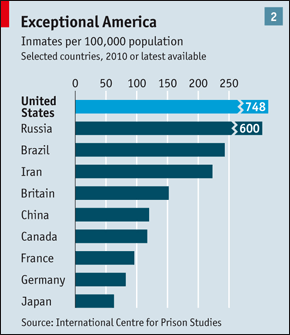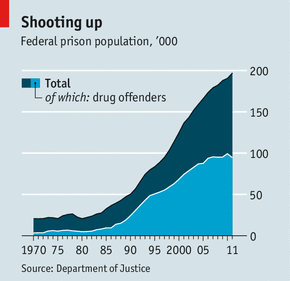- Reaction score
- 33
- Points
- 560
Reason Magazine on Libertarianism as a Social Movement. Since access to the various tools that free people from the "gatekeepers" seems to be a prerequisite, I can see why "Progressives" want to stifle the Internet, restrict technologies like 3D printers and so on. The issue for them is that apolitical people get their hands on these enabling technologies, and suddenly discover "hey, I can do all these things by myself". The second act is when the newly empowered run up against the rules, regulationa and taxes the gatekeepers have set, and realize "these people are in my way".
Of course it is also easy to subvert Leftist dogma if you are clever and wiling to turn their language against them: a person who grows a "Victory garden" in their backyard or balcony and saves money on their grocery bill is also not paying very much in the way of sales tax, but can always get praise from Progressives by saying they are "eating local" or talking about the "environment". Similarly, establishing cooperative networks of similarly minded people to trade specialty goods and services amongst each other bypasses a lot of the regulatory radar but can usually be passed off a "supporting the local economy".
http://reason.com/blog/2013/12/06/lefties-contemplate-the-pain-of-cyberlib
Of course it is also easy to subvert Leftist dogma if you are clever and wiling to turn their language against them: a person who grows a "Victory garden" in their backyard or balcony and saves money on their grocery bill is also not paying very much in the way of sales tax, but can always get praise from Progressives by saying they are "eating local" or talking about the "environment". Similarly, establishing cooperative networks of similarly minded people to trade specialty goods and services amongst each other bypasses a lot of the regulatory radar but can usually be passed off a "supporting the local economy".
http://reason.com/blog/2013/12/06/lefties-contemplate-the-pain-of-cyberlib
Lefties Contemplate the Pain of "Cyberlibertarianism,"
Wonder Where They'll Ever Find a Centralized World to Manage Choice and Behavior
Brian Doherty|Dec. 6, 2013 3:10 pm
David Golumbia writing at Jacobin is steamed at the supposed "deletion of the left" by supposedly dominant "cyberlibertarians."
He starts off going wrong with a rather gross misunderstanding of what being "of the left" in American terms means these days:
The digital revolution, we are told everywhere today, produces democracy. It gives “power to the people” and dethrones authoritarians; it levels the playing field for distribution of information critical to political engagement; it destabilizes hierarchies, decentralizes what had been centralized, democratizes what was the domain of elites.
Most on the Left would endorse these ends. The widespread availability of tools whose uses are harmonious with leftist goals would, one might think, accompany broad advancement of those goals in some form. Yet the Left today is scattered, nearly toothless in most advanced democracies. If digital communication technology promotes leftist values, why has its spread coincided with such a stark decline in the Left’s political fortunes?
What the left really wants is a centralized elite authority that pursues particular ends it claims to desire, often allegedly on behalf of "the people"; people who really want dethroned authority, free flow of information, and decentralization are libertarians.
Why would a left that wants to see a world shaped to its own particular desires--about income distribution, market and personal choice and behavior, and forced change in people's transportation, energy, and consumption choices, embrace a world of greater decentralization and choice?
Rather than engaging the real reasons why the mentality implied by the "digital revolution" hasn't lad to a resurgent leftist world of policy, Golumbia decides to blame those who actually recognize that there is a pretty natural connection between digital practice and ideology and libertarianism. What's more, he gets mad at leftists in the digital realm who even hold any truck with libertarians:
When computers are involved, otherwise brilliant leftists who carefully examine the political commitments of most everyone they side with suddenly throw their lot in with libertarians — even when those libertarians explicitly disavow Left principles in their work.
This, much more than overt digital libertarianism, should concern the Left, and anyone who does not subscribe to libertarian politics. It is the acceptance by leftists of the largely rhetorical populist politics and explicitly pro-business thought of figures like Clay Shirky (who repeatedly argues that representative democratic and public bodies have no business administering public resources but must defer to “disruptive” forces like Napster) and Yochai Benkler (whose Wealth of Networks is roundly celebrated as heralding an anticapitalist “sharing economy,” yet remains firmly rooted in capitalist economics) that should concern us....
The first line above is wonderful: markets and most especially the Internet (where no one knows you are a dog, if you don't want them to) are wonderful realms for mutually pleasurable and valuable interactions where, blessedly, ancient obsessions about agreement on religions, or race or culture, are irrelevant. They are even places where political belief can be glossed over, to get to where what I'm implying will stop making sense to many people even though the beautiful advantages for peace and mutual advantage of just treating certain things as irrelevent to civilized interaction are the same as in the old Enlightenment project of getting over race, religion, and gender, and nationality in deciding who we'll tolerate.
But to the leftist, one must "carefully examine the political commitments of most everyone they side with...." and act accordingly.
The rest of the essay goes on (among many other things, including relying on Philip Mirowski's tendentious vision of libertarianism's dark soul) to make typical category errors about what he's speaking about (no, libertarian belief in liberty and spontaneous order is the very opposite of his claim that "cyberlibertarianism holds that society’s problems can be solved by simply construing them as engineering and software problems"); usual assumptions that anything anyone might make a profit at is for that very reason suspect and unsavory; and a core vagueness about what exactly leftist goals are, because sometimes just saying: "managing everyone's lives and a vast roundrobin distribution of wealth in all directions via a massive national machinery of power that we then hope will do the nice things we approve of with it" can be a hard sell.
The digital revolution has given us 3D printers--which help people make guns regardless of regulation. It has given us the means to gamble from our own homes. It has given us an experimental currency outside government control and management. It has allowed communities of affinity to discover facts and arguments they would not have the means to encounter in a more centralized world of news and communication, and propelled strange candidates like Ron Paul to prominence.
All that has not been accident. It is inherent in a very libertarian-at-heart "digital revolution."
The Left alas, will have to invent its own institutions and methods to get what it wants--like, say, an attempt to register and restrict access to and prohibit tools of personal defense, picayune shaping of people's choices of fun, a huge central bank by which to manage the currency for its elite needs and enrich the well connected, and politicians who say only those things that near majorities want to hear. Wherever will the Left find its dream coming true? I feel for them.
I took on an earlier iteration of crummily argued attacks on techno-libertarians back in 2000, in a review of Paulina Borsook's book Cyberselfish.







